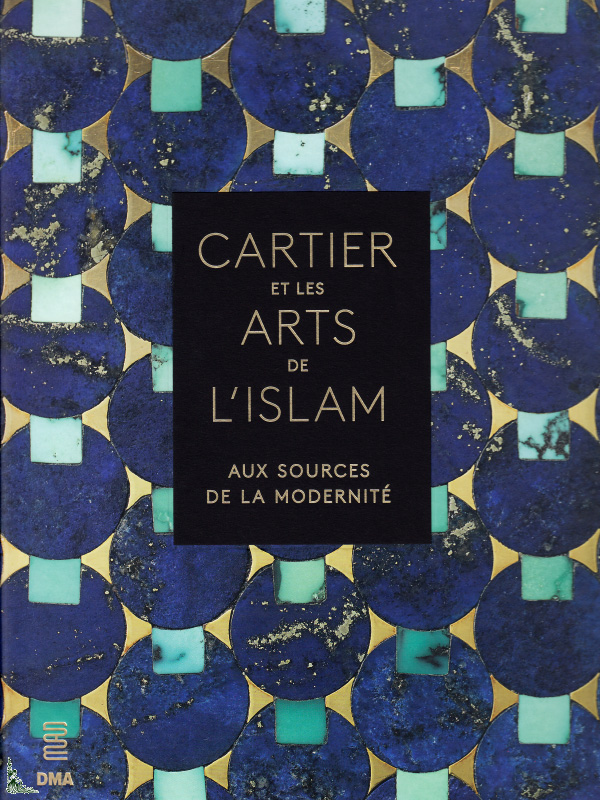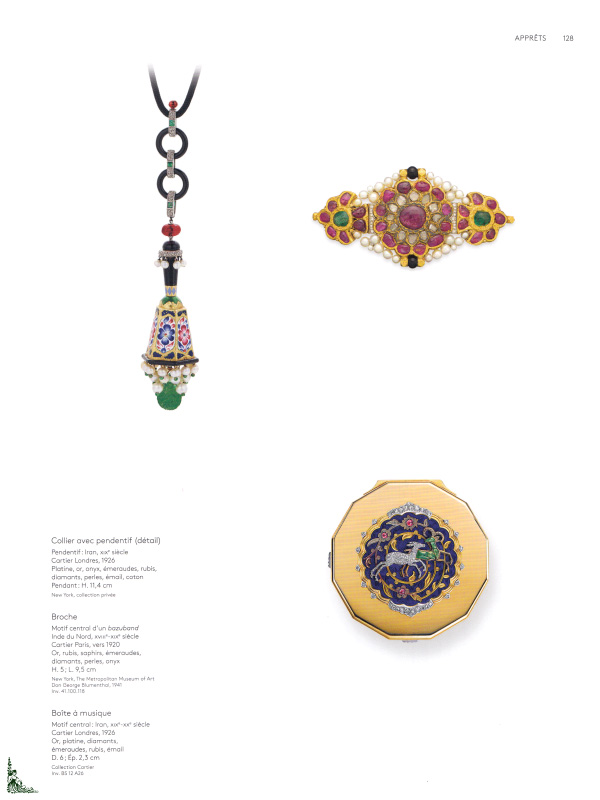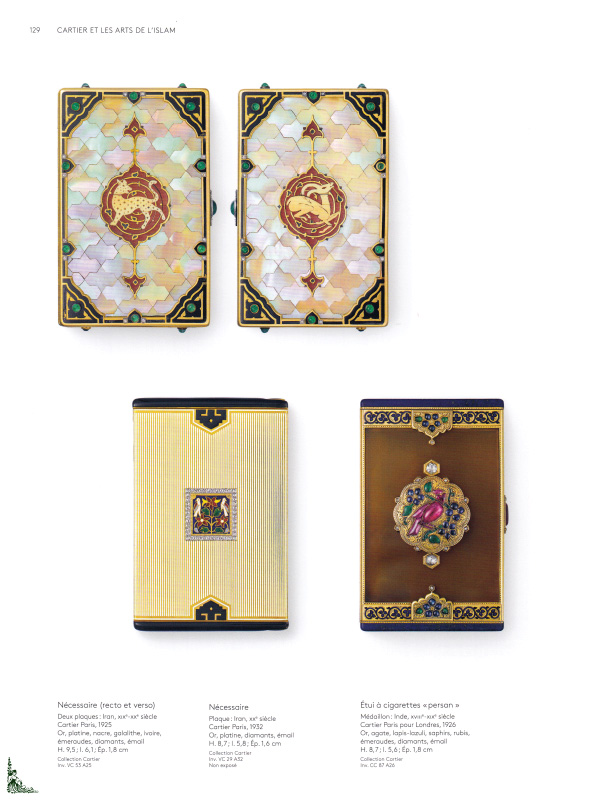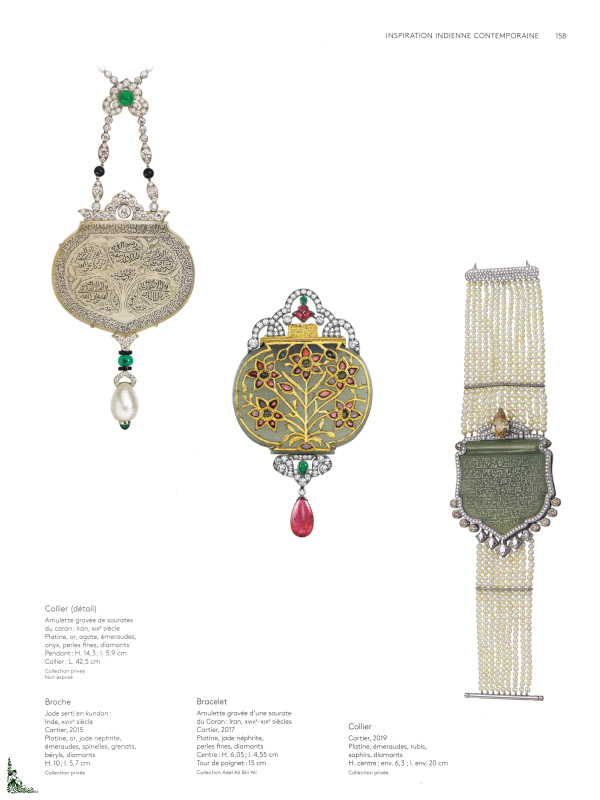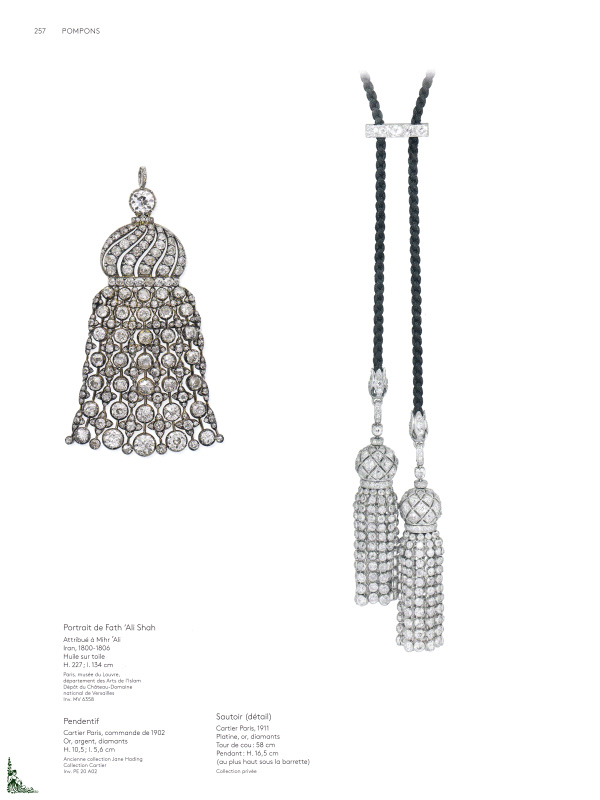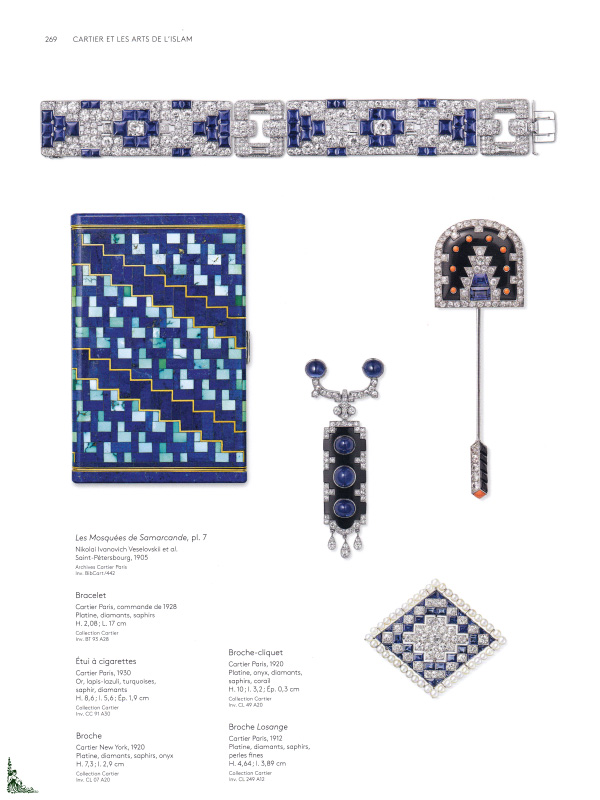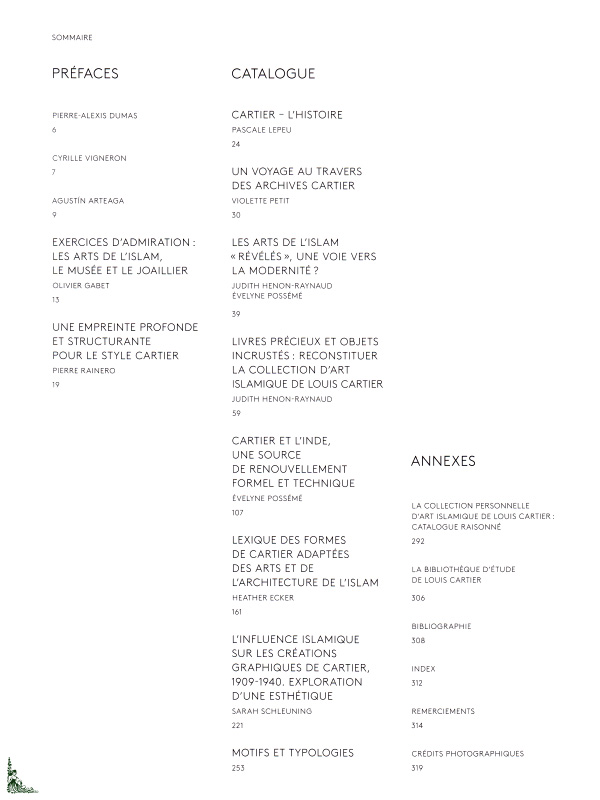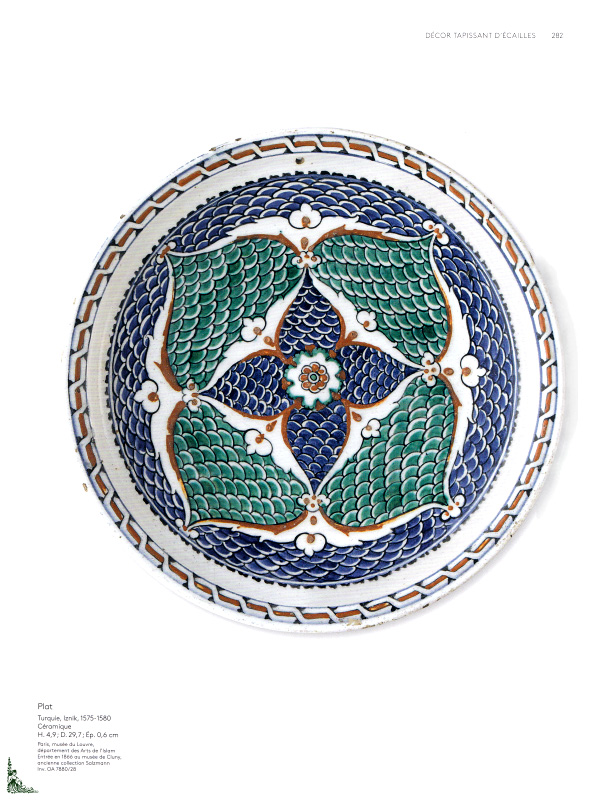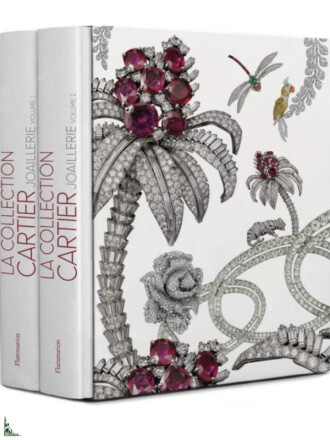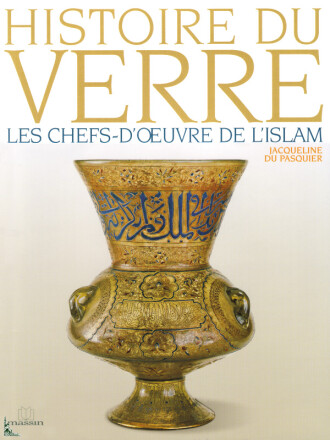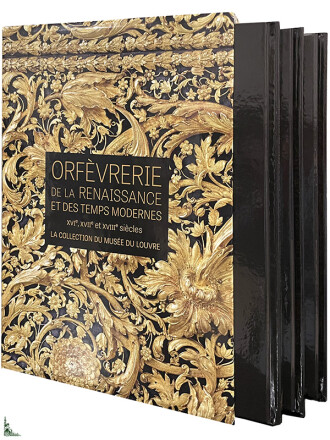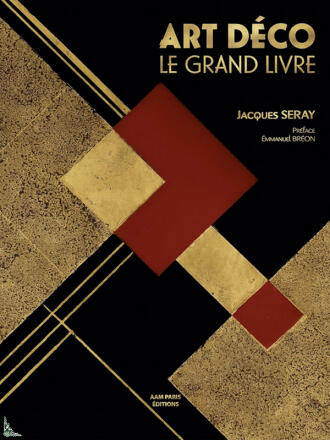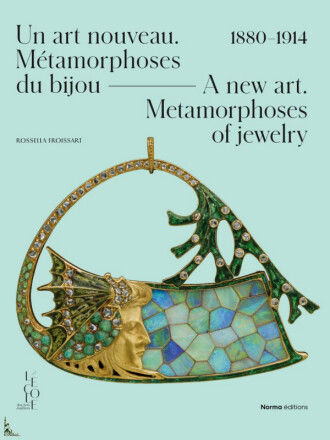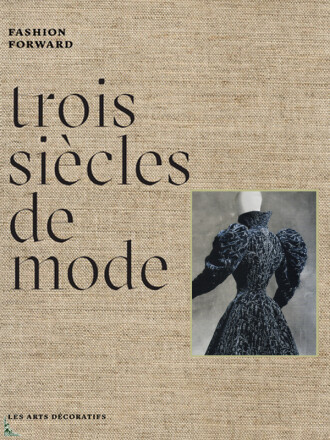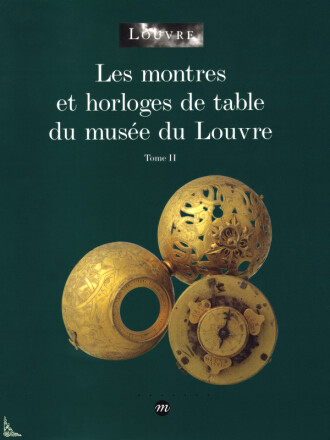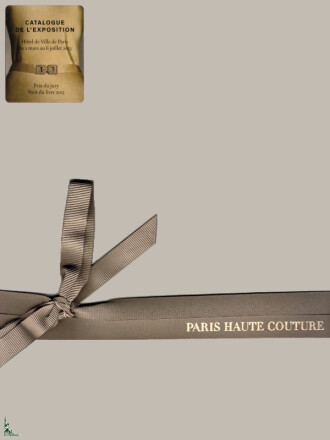Cartier and the Arts of Islam - at the source of modernity
- 売約済み
商品詳細
| 著者 : | Heather Ecker, Judith Henon-Raynaud, Éveline Possémé & Sarah Schleuning |
| 出版社 : | UCAD (2021) |
| 製本 : | Hardcover (320 full color pages) 9-½ inches x 11-½ inches |
| 言語 : | French |
| ISBN : | 978-2-916914-96-1 |
| EAN : | 9782916914961 |
書評
Cartier and the Arts of Islam - at the source of modernity, by H. Ecker, J. Henon-Raynaud, E. Possémé, S. Schleuning, Ed. MAD, 9-½ inches x 11-½ inches ( 24 cm x 29 cm ), hardcover book with 318 full color pages
This hardcover book with 320 pages was printed for the exhibition "Cartier et les arts de l'islam - Aux sources de la modernité" presented at the Musée des Arts décoratifs in Paris.
Created in 1847, Maison Cartier initially specialized in the sale of jewelry and works of art. In the first decades of the twentieth century, she began to design her own jewelry and the founder's grandsons, Louis and Jacques, are looking for new sources of inspiration.
Their discovery of the arts of Islam during major exhibitions organized in Paris and Munich in 1903 and 1910 plays a significant role in the birth of a renewed aesthetic, imprinted with modernity. In search of precious stones and pearls, Jacques Cartier goes to India where he collects ancient and contemporary jewelry, to resell them as they are, to be inspired by them or to recompose them within new creations.
Illustrated with masterpieces of Islamic art, drawings, ornamental and architectural books, photographs and archival documents and of course jewelry and precious objects from Maison Cartier, this book immerses us in the creative process in search of the original sources of inspiration, the influences of the arts of Islam on the productions of the jewelry house in the twentieth century.
Contents:
- Preface by Alexis Dumas
- Preface by Cyrille Vignerons
- Preface by Augustin Arteaga
- Admiration exercises : The Arts of Islam, the museum and the jeweler, by Olivier Gabet
- A deep and structuring imprint for the Cartier style, by Pierre Rainero
- Cartier - history, by Pascale Lepeli
- A journey through the Cartier archives, by Violette Petit
- The "revealed" Arts of Islam, a path to modernity?, by Judith Hénon-Raynaud and Éveline Possémé
- Precious books and inlaid objects : reconstitute Louis Cartier's collection of Islamic art, by Judith Hénon-Raynaud
- Cartier and India, a source of formal and technical renewal, by Évelyne Possémé
- Lexicon of Cartier forms adapted from the arts and architecture of Islam, by Heather Ecker
- The Islamic influence on Cartier's graphic creations, 1909-1940, Exploration of an aesthetic
- Patterns and typologies
- Louis Cartier's personal collection of Islamic Art - Catalogue raisonné
- Louis Cartier study library
- Bibliography
- Index
The French texts are written by Heather Ecker, Judith Henon-Raynaud, Éveline Possémé and Sarah Schleuning.
 Description françaiseunfold_more
Description françaiseunfold_more
Cartier et les Arts de l'Islam - aux sources de la modernité
Détails du livre
| Auteur : | Heather Ecker, Judith Henon-Raynaud, Éveline Possémé & Sarah Schleuning |
| Éditeur : | UCAD (2021) |
| Reliure : | Relié (320 pages couleurs) 24 cm x 29 cm ( 9-½ inches x 11-½ inches ) |
| Langue(s) : | Français |
| ISBN : | 978-2-916914-96-1 |
| EAN : | 9782916914961 |
Description
Cartier et les Arts de l'Islam - aux sources de la modernité, de H. Ecker, J. Henon-Raynaud, E. Possémé, S. Schleuning, Ed. MAD, 24 cm x 29 cm, relié avec 318 pages couleurs
Ce catalogue relié de 320 pages a été crée pour l'exposition "Cartier et les arts de l'islam - Aux sources de la modernité" présentée au musée des Arts décoratifs à Paris.
Créée en 1847, la Maison Cartier est initialement spécialisée en vente de bijoux et d'objets d'art. Dans les premières décennies du XXe siècle, elle commence à concevoir ses propres bijoux et les petits-fils du fondateur, Louis et Jacques, sont à la recherche de nouvelles sources d'inspiration.
Leur découverte des arts de l'Islam à l'occasion de grandes expositions organisées à Paris et à Munich en 1903 et 1910 joue alors un rôle significatif dans la naissance d'une esthétique renouvelée, empreinte de modernité. En quête de pierres précieuses et de perles, Jacques Cartier se rend en Inde où il collecte des bijoux anciens et contemporains, pour les revendre en l'état, s'en inspirer ou les recomposer au sein de créations nouvelles.
Illustré de chefs-d'oeuvre de l'art islamique, dessins, livres d'ornements et d'architecture, photographies et documents d'archives et bien sûr de bijoux et d'objets précieux de la Maison Cartier, cet ouvrage nous plonge dans le processus créatif à la recherche des sources d'inspirations originelles, des influences des arts de l'Islam sur les productions de la maison de joaillerie au XXe siècle.
Principaux chapitres de l'ouvrage :
- Préface de Alexis Dumas
- Préface de Cyrille Vignerons
- Préface de Augustin Arteaga
- Exercices d'admiration : Les Arts de l'Islam, le musée et le joaillier, de Olivier Gabet
- Une empreinte profonde et structurante pour le style Cartier, de Pierre Rainero
- Cartier - L'histoire, de Pascale Lepeli
- Un voyage à travers des archives Cartier, de Violette Petit
- Les Arts de l'Islam "révélés", une voie vers la modernité ?, de Judith Hénon-Raynaud et Éveline Possémé
- Livres précieux et objets incrustés : reconstituer la collection d'art islamique de Louis Cartier, de Judith Hénon-Raynaud
- Cartier et l'Inde, une source de renouvellement formel et technique, de Évelyne Possémé
- Lexique des formes de Cartier adaptées des arts et de l'architecture de l'Islam, de Heather Ecker
- L'influence islamique sur les créations graphiques de Cartier, 1909-1940, Exploration d'une esthétique
- Motifs et typologies
- La collection personnelle d'Art Islamique de Louis Cartier - Catalogue raisonné
- Bibliothèque d'étude de Louis Cartier
- Bibliographie
- Index
Les textes en Français sont de Heather Ecker, Judith Henon-Raynaud, Éveline Possémé et Sarah Schleuning.


